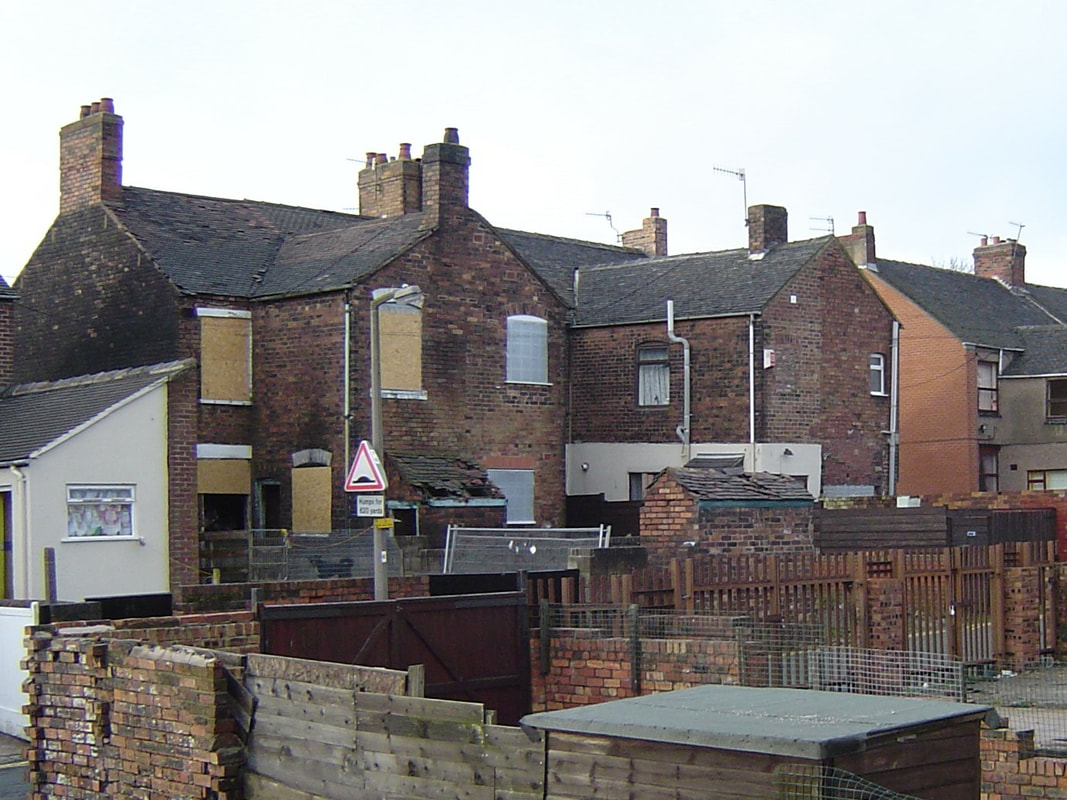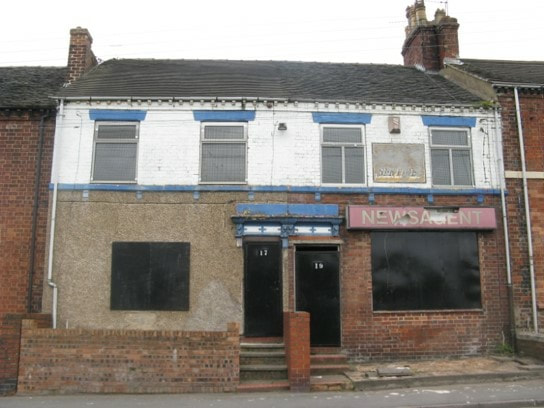|
One difference between myself and my more privileged friends and colleagues is the ability to go back to a childhood bedroom or equivalent. Following work on intergenerational mobility, the role of the family in social mobility and home ownership and social mobility, I use this as jump off point to think about the role of assets or Bourdieu’s capitals and the way such resources help people to get even more ahead. My own childhood bedroom is long-gone. I was a teenager in the 80s, and lived a few hundred metres from the council estates my parents grew up on. I won’t go into the wider disorder and split life of my childhood – that can wait for another time – but I’m relatively sure that I was one of very few Cambridge students to return, after graduation, to a miner’s terrace on a sink estate, which had already been scheduled for demolition as part of Stoke-on-Trent’s slum clearances. A few years later it was demolished, after decades of social decline: I returned for an hour or so to watch my childhood room be destroyed. This kind of environment is one where teenagers have to live their social lives on the street, in bus shelters, working mens’ clubs and sitting on garage roofs: I learnt later that others had friends round to visit. I didn’t realise at the time, but it is unbelievably disheartening to have tasted privilege and then have to return to this. A few months later I fled for good, and two decades later I can count the number of hours I’ve spent in my mum’s current house, on the council estate at the end of this same street, on one hand.
And this, then, is where the first of those asset issues arises. I’ve been lucky with my education, timing wise, as the government paid my way into an independent school (the Assisted Places scheme) and I had fees paid and a maintenance grant for university. I also gained some forms of cultural capital via education and leisure, but had no social or economic capital to speak of. Everyone else in my family left school at the school leaving age - my mum did return to education and move into teaching while I was a kid – and we knew no-one who had done any different, or lived anywhere else. My university cohort, by and large, could return to affluent homes in London and the Home Counties, could stay with their parents, find a job and begin a career. I slept on floors and sofas, living out of a rucksack, when I arrived in London, and like many others took the first work that could pay the rent. It took seven years and another degree to get a first job in the kind of work I’d wanted when I graduated: for others, connections or the possibility of working for free in an internship quickly opened doors that I had to keep knocking at. Indeed, it was only because I’d spent years earning in a retail job that I could afford to do the internship at the age of 28. And of course, this late start also impacts on that next stage of economic accumulation. It’s easier to save with a well-paying job, especially if you can live rent free. And even in the 90s and 2000s, the bank of mum and dad was available to the more privileged. Others inherited from grandparents, but mine were all in social housing before they died (young, of industrial diseases). Thus, while the data show that working-class graduates hailing from the north earn substantially less than middle-class graduates who grew up in London, there’s an additional head start with accumulating resources that provide for long-term stability and a safety net: we should also be measuring wealth in this way. As time goes on there become other lucky breaks to consider. In academia, where I work now, it’s the permanent job, promotion to professor, or research fellowship that play this role. Not for nothing is such progression called ‘getting ahead’. Two lecturers can be appointed at the same time, with equivalent talents and dispositions, but if one gets the three-year fellowship they are suddenly catapulted ahead. At year four of this timeline, one lecturer has had 12 months of research time, while the other has had 36, and so at the next application, the latter is valued far higher as it’s research that counts. Thus, success in the future is predicated on success in the past, despite the line between success and failure being wafer thin. And so it goes on. Those with privilege disproportionately get the lucky breaks, and so privilege is reproduced. As with my previous post, the greater the degree of inequality, the more entrenched this becomes. That house my childhood bedroom was in was worth a quarter of the national average, and so about a 10th of the London average. No amount of cutting back on other stuff (‘sacrifices’) can bridge this gap, so it is next to impossible for someone living in working-class Stoke to think it is possible to live at the heart of the country. In the past, when differentials were lower (the early 90s, say), those with more income and wealth would have had it easier, but at least it was possible for me to live in the same city as them. This, then, can be boiled down to two components. First, the difference in family or background wealth (starting point), high income inequality (producing very different speeds of accumulation) combine to make wealth, and capitals more general, far more unequal than mere income. See Killewald et al. for a broad brush look at this. Second, when wealth inequality gets wider, it becomes more difficult to bridge the gap. Investment, whether it be forgone income, paying for education, or making a expensive move to the big city, requires a sizable chunk of capital: wider wealth inequality can make this simply out of reach. Talk of housing or career ladders is problematic once some of the rungs are removed.
0 Comments
As part of the Extinction Rebellion event, Emma Thompson joined the protest, spoke to the media from XR’s pink boat, and this week defended herself from charges of hypocrisy, having flown from LA to London to do so. On Radio 4’s Today Programme, she argued that we’re all guilty of some hypocrisy – and when we consider that most if not all the listeners will have environmental footprints bigger than the global average, I guess she’s right – and then that ‘We should all fly less. We’re all going to have to fly less.’ (Evening Standard 25 April). It’s this that I want to focus on, as it prompts a question of what this would mean, how this relates to individual and international justice, and then onto what form of equality we want. It takes me back to an argument I was having with a friend back in 2005: does addressing poverty imply redistribution from rich to poor, or keeping the share of the cake the same while the size of the cake is growing?
I don’t know how far, or how many times Emma Thompson flies each year. I assume it’s a great deal more than me, and I fly more than many in the UK and more than most in the world… I also assume she flies less than some others too. Using data from the UK in 2014, we know the distribution is skewed: 52% of adults had taken no flights, 22% had done one trip by air, 11% had done 2, 5% had done 3, and 10% had made 4 or more trips. 70% of all trips were made by the last 15% (DfT 2014). Let’s assume Emma made 20, and for arguments sake we’ll assume that all flights are equally far. We can also assume that at least some of that first 52% do sometimes fly, just not every year. So if ‘we’re all going to have to fly less’, what would this mean? I presume that the overall aim is less total flying (so less carbon emissions). This could be achieved by the same reduction to everybody: that is, each person taking one flight a year less (a). Or perhaps by a proportional reduction, with each taking 25% fewer trips (b). Or those flying most often reducing their flights more than that of those who fly least (c). Obviously, for option a, people can’t take fewer flights if they don’t take any now, and those who take one a year would then be prohibited from flying at all. Option b would require Emma losing five trips a year, but someone who flies once a year being reduced to a foreign holiday three years from four. It’s hard to see how either of these can be justified: the 85% who take two trips or fewer can ask why they should be limited when some others have far more. And this, in essence, is the question we must ask when it comes to both emissions and material inequalities in general. We cannot tell China (in aggregate) that they should have lower emissions per capita, when Western emissions are far higher. In the long run, the population of the world (in aggregate, ignoring preferences) want what we have, that is a quality of life that includes cars, technology, good food and housing, and the middle-class lifestyle takes up resources that are finite. This, though, is also the problem with addressing poverty by growing the cake as opposed to making the slices more equal. Whether we look at the UK, or the globe, it’s the case that the growing of the cake means that a lower percentage of people are going to die of malnutrition now than they did before (see Rosling’s Factfulness). However, as the sum total of stuff, resources, ‘commodity bundles’ or perhaps ‘wellbeing’ and ‘utility’ grows, the expectations of what is reasonable and fair also increases. The problems with that cake analogy is that, at any one time, the size of the cake is finite and we must ask how justifiable it is that some people have far bigger slices than others. Drawing on Anne Philips’ work on egalitarianism, this is not to be dismissed as the politics of envy, or differences generated by choice such that the artist chooses time to paint as more important than money. If the differences created by choices, dispositions and capabilities were small they would matter less. In a society (or even world) where the difference between rich and poor were small, then the person choosing to be a frequent flier would be giving up something else, like the big house in a nice neighbourhood or a luxury car. With the levels of inequality we do have, however, we instead have 15% of people who take 3 flying trips a year, and have nice homes, cars and so on, while some others take no flights, own no homes or cars: perhaps one way to see this is in the vastly different environmental footprints between the rich and the poor, and equalisation of these is a route to a more just society. |
Archives
May 2022
Categories |


